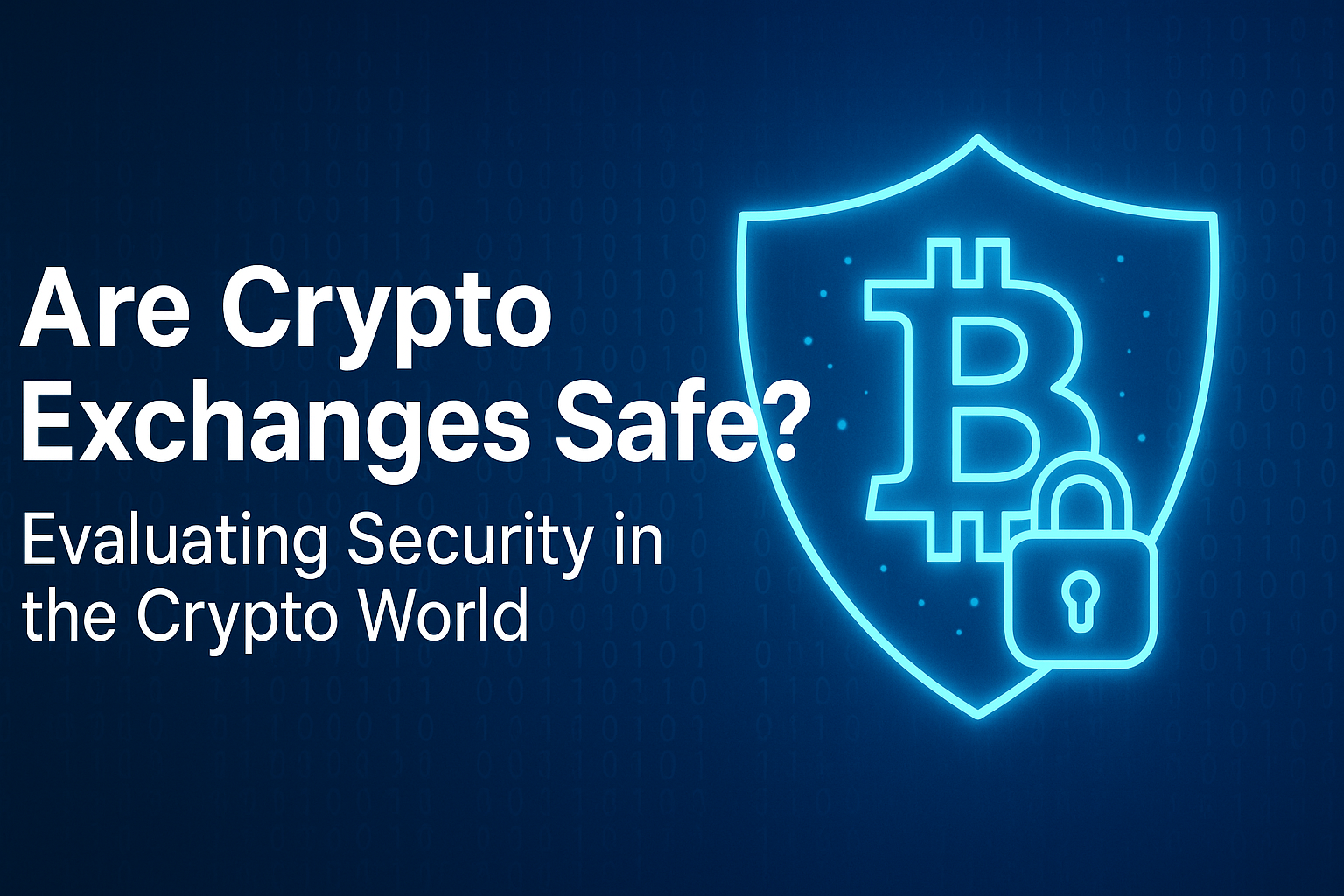- Introduction
- Understanding the Risks
- How Crypto Exchanges Secure User Funds
- Famous Exchange Hacks: What Went Wrong?
- Security Features You Should Look For
- Choosing Between Centralized and Decentralized Exchanges
- Are Crypto Exchanges Safe for Beginners?
- Real User Experience
- FAQs
- Conclusion
- How Dextr Can Help
Introduction
Cryptocurrency has become a global financial revolution, but one pressing question remains: are crypto exchanges safe? With billions in digital assets traded daily and increasing adoption of blockchain technologies, users must evaluate the safety of their chosen platforms. This article breaks down the risks, security measures and best practices to help users confidently interact with exchanges.
Understanding the Risks
Crypto exchanges are digital platforms that enable users to buy, sell and trade cryptocurrencies. But they also come with security concerns. If you’ve ever asked are crypto exchanges safe, it’s important to understand what threats you might face:
- Hacking: Cybercriminals constantly target exchanges to steal funds.
- Phishing: Fake emails or websites trick users into revealing credentials.
- Insider threats: Disgruntled employees can leak sensitive data.
- Regulatory clampdowns: Exchanges might shut down suddenly due to legal issues.
Being aware of these risks helps users take proactive safety measures.
How Crypto Exchanges Secure User Funds
Despite the risks, many exchanges are actively strengthening their security protocols. Here are some common safety methods used by reputable platforms:
- Cold Wallet Storage: A large portion of user funds are kept offline, making them unreachable by hackers.
- Two-Factor Authentication (2FA): Adds another layer of login protection.
- End-to-End Encryption: Protects sensitive data while it's being transferred.
- Withdrawal Whitelists: Only approved addresses can withdraw funds, preventing external theft.
Some platforms even perform regular audits and publish proof-of-reserves reports, increasing transparency and trust.
Famous Exchange Hacks: What Went Wrong?
Several major hacks over the past decade have shown how critical security is. Let’s examine a few notable incidents and what caused them:
| Exchange | Year | Funds Lost | Cause |
| Mt. Gox | 2014 | $450 Million | Weak security + poor auditing |
| Coincheck | 2018 | $534 Million | No cold wallet usage |
| KuCoin | 2020 | $280 Million | Hot wallet compromise |
Each case raised alarms in the crypto community. These incidents pushed the industry to develop better standards.
"Security is not a product, but a process." – Bruce Schneier, Cybersecurity Expert
Exchanges must constantly improve systems, because attackers evolve just as quickly.
Security Features You Should Look For
To better protect your crypto, ensure your exchange has key safety mechanisms:
Must-Have Features:
- Secure Socket Layer (SSL) encryption
- Offline cold storage for most funds
- Two-factor authentication (2FA)
- Real-time security monitoring
Bonus Features:
- Biometric login options (face/fingerprint ID)
- Insurance for stored funds
- Withdrawal limits and time delays
- 24/7 customer support for security incidents
Verifying these features helps users feel confident when wondering are crypto exchanges safe for their assets.
Choosing Between Centralized and Decentralized Exchanges
When evaluating are crypto exchanges are safe, it’s helpful to understand the differences between CEXs and DEXs:
- Centralized Exchanges (CEXs)
- Regulated and beginner-friendly
- Higher liquidity for faster trades
- Can freeze accounts or be hacked centrally
- Decentralized Exchanges (DEXs)
- No central authority; users control their funds
- Less regulation, but more privacy
- Smart contract vulnerabilities instead of server hacks
Choosing the right exchange depends on your experience level, trading goals and risk tolerance.
Are Crypto Exchanges Safe for Beginners?
New users may find crypto confusing. Fortunately, safety doesn’t require expertise. Here are tips for beginners:
- Use beginner-friendly, regulated exchanges.
- Turn on 2FA immediately after creating an account.
- Don’t click on email or text links claiming account issues.
- Store long-term holdings in a hardware wallet.
- Regularly review your account for suspicious activity.
Being cautious from day one helps answer are crypto exchanges safe with a resounding yes, for those who prepare.
Real User Experience
Customer Testimonial
"I switched to a platform with proof-of-reserve audits and robust cold wallet systems while working from the UK. When I encountered an issue, their support team resolved it within minutes. I’ve stuck with them ever since—having that level of reliability truly gives peace of mind."
— Vienna V., London, UK
FAQs
Q1: Are all crypto exchanges regulated?
No, regulation varies by country. Always choose platforms registered under credible authorities like the SEC or FCA.
Q2: What’s the safest way to store cryptocurrency?
Hardware wallets are safest because they store your private keys offline and away from hackers.
Q3: Can crypto be recovered after a hack?
Only if the platform has insurance or refund policies. Otherwise, it’s usually gone for good.
Q4: Is it better to use multiple exchanges?
Yes. Spreading assets across exchanges reduces risk from a single point of failure.
Q5: Should beginners use DEXs?
Not always. DEXs require technical knowledge and wallet management. CEXs are easier for newcomers.
Q6: How can I verify if an exchange is secure?
Check reviews, verify regulatory licenses and look for safety features like 2FA, insurance and cold storage.

Conclusion
So, are crypto exchanges safe? They can be—if you pick the right platform and follow personal security best practices. With the right tools and habits, you can reduce risks and safely participate in the crypto economy.
At Dextr, we guide users in picking secure and reliable exchanges through audits, reviews and real-time security updates. If you're still unsure whether crypto exchanges are safe, let us simplify your decision with tools tailored to your needs.
References